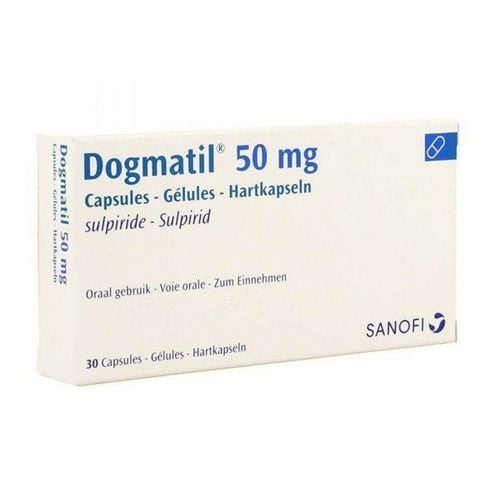Parents need to know that puberty amnesia is real. When absent-mindedness is present, a child's life can become chaotic. Understanding the causes of young people's forgetfulness, parents will help their children organize and arrange things more clearly and effectively.
1. Common causes of forgetfulness in teenagers
1.1. Hormonal changes that cause forgetfulness
With the increase of completely new hormones, the brain will be overstimulated with emotions that are often difficult to control. As the brain continues to develop throughout adolescence, this development will affect the function of different parts of the brain, including the prefrontal cortex.
At this time, forgetfulness in teenagers may be because of planning, memory, and the ability to control social behaviors that have been affected by the development taking place in the brain. Forgetfulness becomes inevitable with the constant evolution that the brain undergoes during adolescence.
1.2. Lack of sleep
Children entering puberty often need to spend a lot of time sleeping during the day, allowing the body to develop. 8 to 10 hours per night is the recommended amount of sleep that adolescents need during these important developmental years.
However, children often want to do many different things instead of sleeping. This can make it difficult to concentrate and remember.
1.3. Multitasking
Teens should do one task at a time because the brain can become overloaded and suffer from forgetfulness.
When there is too much information to absorb, many activities to do in a day, from studying, eating, physical activities, playing with friends and other new social relationships, can make a child in puberty so overwhelmed that he or she becomes constantly forgetful, missing out on what needs to be done.
1.4. Health status
Forgetfulness in young people is sometimes easily overlooked as the causes are due to abnormal conditions affecting the brain, such as dyslexia, attention deficit hyperactivity disorder, depression, organic brain damage due to brain tumors, after head trauma or thyroid problems.
If parents think their child is more forgetful than they can accept, they should take the child to see a pediatrician.

2. Uncommon causes of memory loss in adolescents
2.1. Slow Learning Ability
Some children may have a slow learning process, which can lead to poor memory and academic failure compared to their peers.
Other characteristics of slow learners include:
- Lack of concentration;
- Poor imagination;
- Inability to express ideas verbally;
- Poor social skills.
Note that slow learners do not always have a mental disorder. Instead, they may simply need more time than others to process and understand concepts. With improved teaching techniques and more attention from parents and teachers, memory problems in children can be effectively addressed.
2.2. Medications that cause memory loss in adolescents
Certain medications can also be the cause of forgetfulness in young people. Sedatives, antidepressants, and blood pressure medications can affect memory. These medications produce a sedative effect, which can make it difficult for the brain to concentrate and remember information.
2.3. Vitamin B-12 Deficiency
A study of 3,156 children between the ages of 5 and 12 found that vitamin B12 deficiency was associated with repeat grades and absenteeism in children. Another study found that low vitamin B12 levels may be associated with neurocognitive disorders. Therefore, vitamin deficiency may also be a reason for sudden memory loss in adolescents.
Other symptoms of vitamin B12 deficiency include:
- Numbness and tingling in the hands and feet;
- Anemia;
- Weakness;
- Fatigue;
- Glossitis.
2.4. Substance abuse
Studies have found that substance abuse, such as alcohol and drugs, can lead to changes in the structure and function of the brain. Heavy drinking may also be associated with forgetfulness in young people.
2.5. Stress and Anxiety
The amygdala and hippocampus regions of the brain are important for processing emotions and storing them as memories. They are also involved in learning and regulating memory. Studies have found that children exposed to stress and anxiety in childhood show changes in the development of the amygdala and hippocampus, leading to memory loss in adolescence.
2.6. Excessive Device Use
In this age of multimedia explosion, although further research is needed, existing studies suggest that prolonged smartphone use may affect memory function in adolescents.

3. Home Remedies to Improve Memory in Teenagers
Following your doctor’s advice is a good treatment for short-term memory loss. If the underlying cause is treated, your child can completely regain normal memory ability. However, to help your child during the treatment process, parents can consider trying some of the following home remedies to improve their child’s concentration more effectively”
- Chewing gum: Chewing gum plays a role in increasing alertness and concentration, which may be the reason behind better performance in learning and working.
- Yoga and meditation: Combined yoga exercises can help improve memory, which helps increase learning performance in teenagers. Meditation can help achieve higher levels of concentration and awareness. Breathing exercises can help reduce stress and promote better mental health. Therefore, encouraging children to practice yoga and meditation regularly can limit forgetfulness if practiced long-term and consistently.
- Reading practice: Studies have found that focusing on reading something presented in a difficult-to-read format is a practice that helps children remember better.
- Doodling: Although this is considered a sign of inattention, studies show that doodling can help the brain focus and recall information better. This unconscious action can also help reduce stress and improve concentration.
- Laugh often: Stress causes excess production of the hormone cortisol, which causes damage to nerve cells related to learning and memory. At this time, laughter will help reduce cortisol levels, improving short-term memory. Therefore, parents need to encourage their children to laugh and be happy often.
In short, as the brain continues to develop throughout adolescence, this development will affect the function of different parts of the brain, causing forgetfulness in puberty. Besides, many other factors also cause children to have forgetfulness, but this is a normal aspect of life. As parents, adults need to ensure normal mental development conditions for children, observe whether the child has any other health abnormalities or not to get timely examinations.
Please dial HOTLINE for more information or register for an appointment HERE. Download MyVinmec app to make appointments faster and to manage your bookings easily.
References: stonewaterrecovery.com, .mvorganizing.org, momjunction.com












